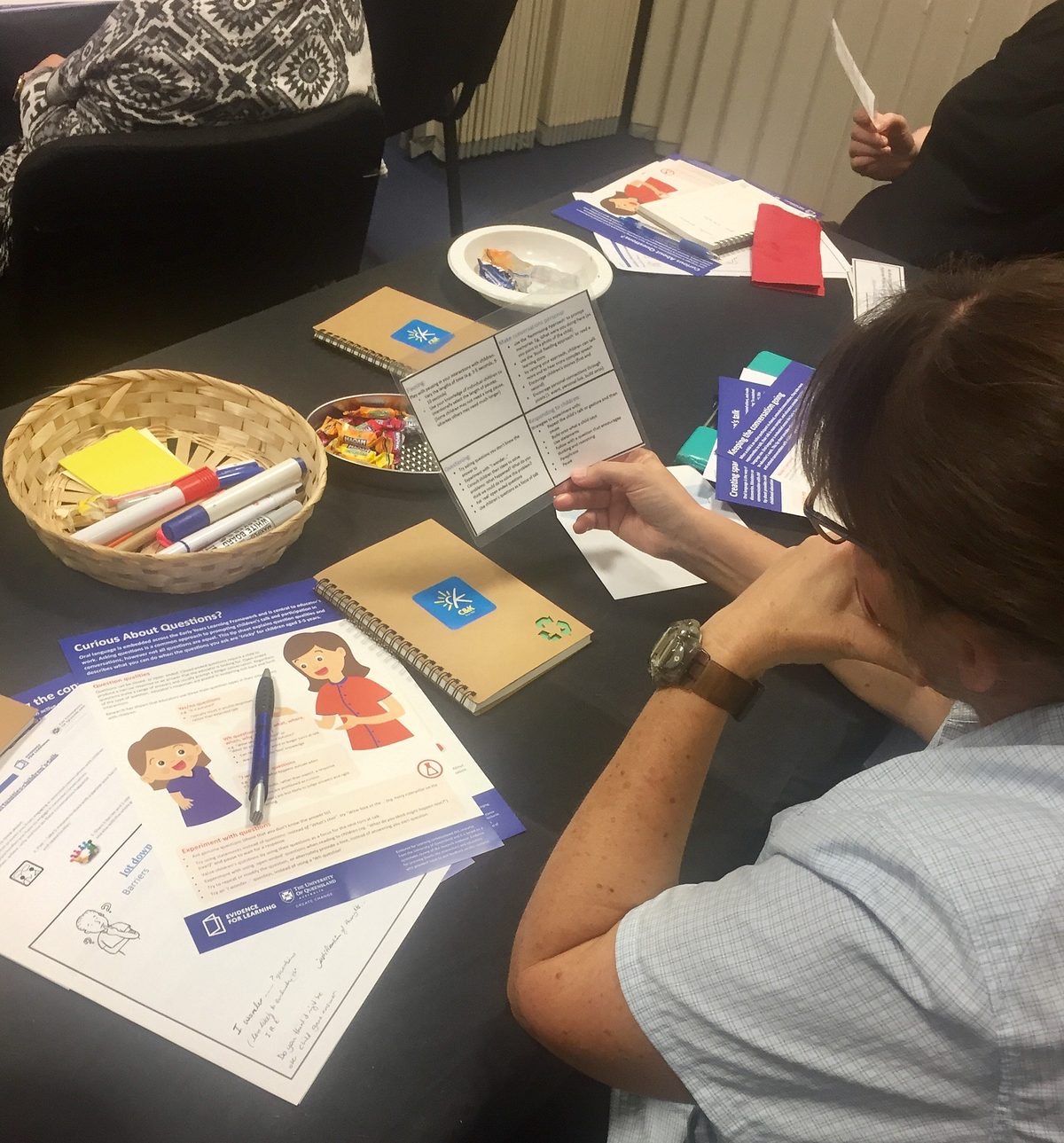If you are interested in procuring professional development on one or more of the E4L resources, you can reach out to one of the associated Australian professional learning providers by contacting the Education Endowment Foundation.
Partners: Association of Independent Schools of the ACT and partner schools
Length of partnership: 5 years
Reach: 24+ schools, 48+ educators
Location: Canberra, ACT
Overview: AIS ACT and E4L co-designed a series of workshops and ‘evidence coaching’ sessions for school leaders and teachers which supports each school to develop a plan for implementation based on a priority area the school has identified. A number of touch points with each school were held over the course of the year to assist with the development of an implementation plan, the effective use of evidence, the ongoing tracking and monitoring of their work and finally evaluation of impact.
For examples of the implementation projects undertaken, see the ACER Teacher articles entitled Evidence-based school improvement – from vision to implementation and Implementing the evidence to maximise the impact of Teaching Assistants
Partner: Northern Territory Department of Education
Length of partnership: 5 years
Reach: All NT government schools
Location: Northern Territory
Overview: Evidence for Learning was engaged as an evidence partner to support the Northern Territory school improvement model by:
- Curating and presenting synthesised and translated global and national evidence;
- Creating locally relevant, evidence-based resources and case studies;
- Trialling and reporting on programs and practices; and
- Supporting schools and the system to implement and evaluate successfully.
This partnership aimed to support the use of evidence and build the capacity of educators to empower the profession.
Partner: Northern Territory Department of Education with the Eventful Learning Co, Pivot PL and Google for Education.
Length of partnership: 7 years
Reach: 50+ schools, 150+ educators, 250+ students
Location: NT government schools
Overview: The Northern Territory Learning Commission is an initiative placing students at the centre of leading research and providing evidence-informed recommendations alongside their teachers and school leadership teams to improve practice within their own school and across the region.
For more information, see E4L’s blogpost on Collaboration and Flow in Katherine (2017) and the ACER Teacher article on Student agency in action in the Northern Territory (2020).
Partner: C&K (The Creche and Kindergarten Association)
Length of partnership: 3 years
Reach: 330 kindergarten centres and childcares around Queensland
Location: Various locations around Queensland
Overview: Not-for-profit early learning provider C&K (The Creche and Kindergarten Association) has worked with Evidence for Learning (E4L) to use evidence to support the professional practice of C&K’s educators. This collaboration helped to support C&K’s strategic actions to invest in professional development for educators that is informed by the latest research and supports all their centres to exceed the National Quality Standard.
For more information, see an article kindly republished from ACEL’s Australian Educational Leader entitled C and K: Leading with evidence in early childhood education.

Partner: The Brown Collective – a worldwide collective of thought leaders and advisers focused on enhancing the performance of individuals, teams and whole organisations.
Length of partnership: 5 years
Reach: 500+ educators
Location: Various locations including Adelaide (SA), Brisbane and Townsville (Qld), Sydney and Lismore (NSW), Darwin (NT), Melbourne and Ballarat (Vic)
Overview: E4L partnered with The Brown Collective to support the suite of capacity building programs they have developed with and for the profession. E4L worked across a number of The Brown Collective cohorts, primarily on the development of an evidence-informed implementation plan aligned to strategic and leadership priorities.
Partner: The Agile School Leadership program is an intensive, 12-week online workshop designed by Dr Simon Breakspear for high-performing school leadership teams who want to level up and lead meaningful change.
Length of partnership: 3 years
Reach: 100+ educators
Location: Various locations (delivered online)
Overview: E4L worked alongside Dr Simon Breakspear to support the Agile School Leadership program with the latest global research evidence and insights on evidence-informed implementation for school leaders.
Partner: Teaching Sprints is a manageable and meaningful approach to evidence-informed professional learning for teachers.
Length of partnership: 4 years
Reach: 500+ educators
Location: Sydney, NSW
Overview: E4L worked alongside Dr Simon Breakspear to support the Teaching Sprints professional development process, including how to support educators to meaningfully engage with the best available evidence in the field.
Partner: The Northern Centre for Excellence in School Engagement (NCESE) is a formal collective aimed at building capacity to develop and implement school and community programs that support school engagement for all, including (and especially) our most vulnerable students.
Length of partnership: 2 years
Reach: 17 schools
Location: Broadmeadows, VIC
Overview: E4L worked alongside the NCESE team to support school leaders to engage with the best available evidence on school engagement.
Partner: Queensland Catholic Education Commission (QCEC)& Science of Learning Research Centre (University of Queensland), and partner schools
Length of partnership: 3 years
Reach: 30+ schools, 90+ educators
Location: Brisbane, Townsville and Cairns, Qld
Overview: The Research Partner Schools Project (RPSP) is a collaborative professional learning opportunity for teachers and school leaders to engage in an ongoing dialogue about evidence-informed approaches to learning and teaching relevant to a problem of practice or implementation project in their school. E4L supported the initiative by providing evidence summaries and professional learning supports.
For an example of one of the implementation projects undertaken, see the ACER Teacher article entitled Improving students’ writing through feedback.